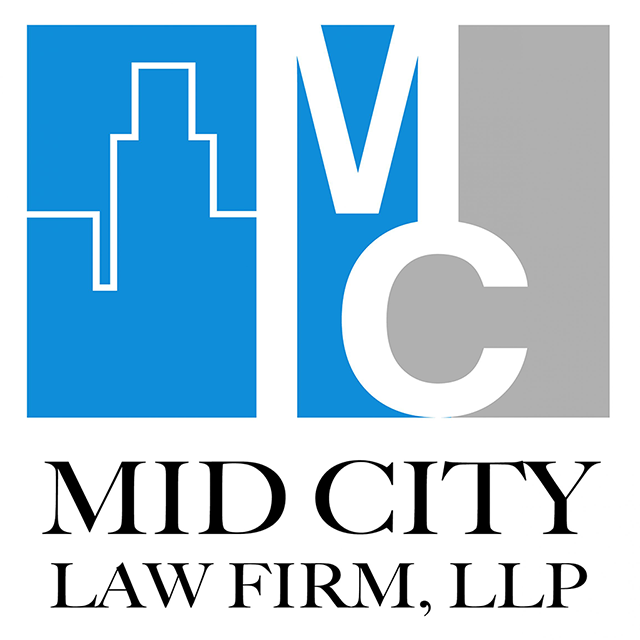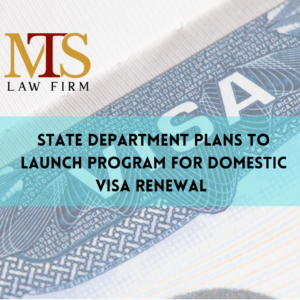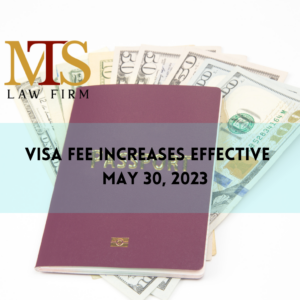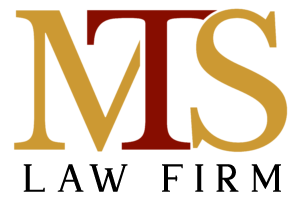Table of Contents
Consular Visa Applications
Immigrant Visa Processing
There are two ways to apply for permanent resident status in the United States.
Consular Processing – The beneficiary of an approved immigrant petition with visa number immediately available may apply at a U.S. consulate abroad through the process called “consular processing.”
Adjustment of Status – Alternatively, if the beneficiary is already in the United States, the beneficiary may apply for the visa without having to return to his or her home country through the process called “adjustment of status.”
If the immigrant petition indicates that the beneficiary will apply for the visa at a U.S. consulate abroad, an approved immigrant petition is forwarded by the USCIS to the National Visa Center (NVC) in Portsmouth, NH for immigrant visa pre-processing at the correct time. Immediate relative (IR) categories do not have yearly numerical limits. However, family preference and employment-based immigrant categories have numerical limits each year; and therefore, wait times are involved, which can be lengthy, for processing to begin. Visa processing begins when the petition’s priority date is already current based on the monthly visa bulletin issued by the Department of Travel.
Consular processing applies when the beneficiary of an approved Form I-130, Form I-140, or Form I-360 petition is outside U.S., ineligible to apply for adjustment of status within U.S., or prefers consulate processing for strategic or convenience reasons. Consular processing is processing through the NVC and a consular post. The NVC collects the fess, affidavit of support, civil documents, and police certificates, as required. When a case is complete, the NVC sends an appointment letter to the applicant, petitioner, and agent/attorney of record, if applicable, notifying them of the date, time, and location of the interview. The NVC then forwards the petition to the appropriate consular post. If the beneficiary will apply for immigrant visa in Guangzhou, China, the Consulate General in Guangzhou, China will send the appointment letters.
Steps in Consular Processing
- Receipt of NVC notification to begin processing with Choice of Agent and Address form (DS 3032).
- Completion of Choice of Agent and Address form (DS 3032) and submission of the form to NVC.
- Receipt of NVC notice of entry of designation of agent in applicant’s record and packet containing invoices for Immigrant Visa Processing Fee and Affidavit of Support (I-864) Processing Fee.
- Payment of Immigrant Visa Processing Fee and Affidavit of Support (I-864) Processing Fee. Payment may be made online using a checking or savings account maintained at a U.S. bank, or by cashier’s check or money order payable to the Department of State.
- Document collection by NVC If payment is made online, the applicant will be given instructions on how to download the instruction packets and the appropriate forms online. The applicant will also be required to print the Cover Sheet (with barcode) to be attached to the documents being submitted to the NVC. If payment is made by mail, the applicant will receive mail notification from the NVC on how to proceed.
- Review by the NVC of the immigrant visa application and supporting documents
- Request by the NVC of additional information or documents, if any. If no additional information or documents are required, the NVC will schedule a visa interview for the applicant
- Approximately one month before your visa interview appointment, the applicant will receive an appointment letter containing the date and time of the interview, along with instructions for obtaining a medical examination
- Pre-interview preparation
- Visa interview at the designated U.S. Embassy/ Consulate General After a successful interview, an immigrant visa will be stamped into the passport or travel document of the applicant. The visa is valid for six months from date of issuance. The applicant must enter the United States and establish a residence before the visa expires.
Non Immigrant Visa Processing
There are two ways to apply for a nonimmigrant visa. An individual can apply at a U.S. consulate abroad. Depending on the type of nonimmigrant visa, a previously approved nonimmigrant petition filed with the USCIS may be required. If the individual is already in the United States and maintaining a valid nonimmigrant status, he or she may apply to USCIS for extension or change of status without need of departing from the United States during the pendency and beyond the expiration of his or her current status up until the extension or change of status application is adjudicated. Application through a U.S. embassy or consulate abroad is called “consular processing” while application made while in the United States is called “extension of stay” or “change of status,” as the case may be.
General Procedure
The first step to apply for a nonimmigrant visa is to fill out the DS-160, a web-based form that consolidates all the information previously collected on the DS-156, DS-157, and DS-158 for appropriate applicants, and the DS-3052. This electronic form is available on the Department of State website. Currently, this form applies to all nonimmigrant applicants, except K visa applicants who must use DS-156, Nonimmigrant Visa Application. The information entered on the DS-160 combined with the personal interview and supporting documentation form the basis for determining an applicant’s eligibility for a nonimmigrant visa.
After completing the DS-160 application online, the applicant must pay the required visa application fee. The applicant must also schedule an interview with the U.S. embassy or consulate at which he or she wishes to be interviewed. At the interview, the applicant must be prepared to present supporting documentation depending on the type of visa applied for.
Different consular posts may have different rules on how to schedule an interview and pay the visa fee. Applicants for nonimmigrant visas must visit the website of the U.S. embassy or consulate where they intend to apply for additional country-specific instructions.
Each family member, even infants, accompanying a visa applicant must submit a separate nonimmigrant visa application, with supporting documentation.
Categories Requiring Approved Petition
For H, L, O and P nonimmigrant visa categories, a prior petition approved by USCIS is required. Petitions for classification under these categories are filed with USCIS on Form I-129, Petition for Nonimmigrant Worker. The petition must indicate whether the beneficiary is applying for a visa at a U.S. embassy or consulate abroad or requesting for an extension or change of status. If a petition indicates that the beneficiary will apply through consular processing, the petition and supporting documentation must be submitted in two copies. Once approved, the USCIS will forward the duplicate copy of the approved petition to the designated U.S. embassy or consulate.
The transmittal of the approved petition to the U.S. embassy or consulate may take considerable time. To avoid delay, the beneficiary may apply for a visa as soon as he or she receives a copy of the Form I-797, Approval Notice. An attorney-certified copy of the petition may be presented by the applicant if required. However, the consulate may require the actual approved petition from USCIS and defer processing the application until such arrives.
If the applicant changes his or her choice of consulate after the petition has been approved and forwarded by USCIS to the designated consulate, the petitioner may request that the new consulate or port of entry be notified of the previous approval of a petition. Such a request must be made on Form I-824, Application for Action on an Approved Application or Petition and filed by the petitioner with the USCIS service center that approved the petition. The Form I-824 application could take several months to process which could result in significant delay in obtaining a visa. .
Non Immigrant Intent
In most cases, refusal of nonimmigrant visa applications at the consular post is based on Section 214(b) of the INA. This section provides that foreign nationals seeking entry on nonimmigrant status, with a few exceptions, are presumed to be intending immigrants. If visa is refused under this section, this means that the applicant has not been able to overcome the presumption that he is an intending immigrant by demonstrating strong ties to his home country and that he has a residence in his home country that he has no intention of abandoning.
There are no hard-and-fast rules on what type of evidence will satisfy the requirement for demonstrating strong ties to the home country. Ties are the aspects of one’s life that bind him or her to his or her place of residence. Ties include family relationships, employment, and property ownership or possessions. Other factors may also be relevant, such as the applicant’s educational background, status in the society, and prospects of employment in the place of residence.
List of Documents to Establish Strong Ties To the Home Country
- Bank statements for the last three (3) months and both current and former bank account passbooks
- Employment certification including salary, tenure and position
- Form W-2
- Income tax returns
- Audited financial statements
- Paycheck stubs for the last three (3) months
- Credit card statements for the last three (3) months
- Vehicle registration
- Real property titles or other proof of ownership
- Pictures of family, home or business
- Wedding photos
- Marriage certificate (original or certified true copy)
- Birth certificate(s) of child(ren) (original or certified true copy)
- For students, certificate of school registration
- Certification of membership to legitimate organization(s)
The presumption of Section 214(b) does not apply to the following visa categories: H-1B, H-1C, H-4, L-1, L-2, and V. These are the so-called “dual intent visas.” The regulations provide that the approval of a permanent labor certification or the filing of an immigrant petition for an individual shall not be a basis for denying an H-1C or H-1B petition or a request to extend such a petition, or the individual’s admission, change of status, or extension of stay.
Visa Issuance or Denial
The consular officer who conducted the interview will inform the applicant at the conclusion of the interview whether he or she qualifies for a U.S. visa. If the applicant qualifies for the visa, the applicant will be required to submit his or her passport for visa stamping. The passport with the U.S. visa stamp will be delivered to the applicant in accordance with the procedure of the particular consulate issuing the visa.
If a visa cannot be issued to the applicant, the consular officer will inform the applicant of the legal and factual bases for the denying the application, unless the facts cannot be disclosed because they are classified. As the case may be, the consular officer may provide the applicant an opportunity to submit additional evidence to establish his or her eligibility for a visa before denying the application.
Navigating the consular processing procedure can be complex and time-sensitive. MTS Law understands the intricacies involved and can guide you through the entire process with expertise and efficiency.
From filing of DS-160 and other relevant documentation to scheduling consular interviews and addressing any potential issues that may arise, we ensure that your consular processing application is handled with meticulous attention to detail. We will work closely with you to gather the required supporting documents, complete the application accurately, and provide guidance on the interview process
Disclaimer
The information presented in this section provides a general overview of the naturalization process in the United States. For accurate and up-to-date information tailored to your individual case, we recommend seeking professional assistance from MTS Law. With over 10 years of experience, our team has successfully guided clients through various aspects of immigration law, ensuring the best possible outcomes for their clients. Contact MTS Law today for comprehensive and reliable immigration legal services.
Recognized as the 'Attorney of Celebrities' since 2010
Having been known in the Filipino community for representing well known promoters, and artists, MTS Law has earned the recognition of being the “attorney of celebrities.” For over 13 years, it has been serving its clients with persistence and determination, always ready to take on tough and challenging cases to help Filipino families realize their American dream.
YELP REVIEWS
[wpyelp_usetemplate tid="1"]
Are you pleased with the service we provided? Kindly consider leaving a Yelp Review to help inform others about your experience
Latest News And Updates

Mid City Law Firm for Personal Injury Cases
May 23, 2023
Respectfully announcing the establishment of our new law firm – the Mid City Law Firm. The Mid City Firm is established as a result of

State Department Plans To Launch Program for Domestic Visa Renewal
May 15, 2023
The State Department seeks to launch a pilot program later this year offering visa renewal options in the US for H-1B specialty occupation workers and

Visa Fee Increases Effective May 30, 2023
May 15, 2023
Effective May 30, 2023, the U.S. Department of State will increase certain nonimmigrant visa (NIV) application processing fees globally. The application fee for visitor visas
SCHEDULE A FREE CONSULTATION
Tell us how we can help you
Phone: + 1 (213) 232-3154 (818) 731-2205 Fax: (213) 380-9300
Email: info@mtsangalaw.com
oFFICE ADDRESS: 3600 Wilshire Blvd. Suite 920 Los Angeles, California 90010

